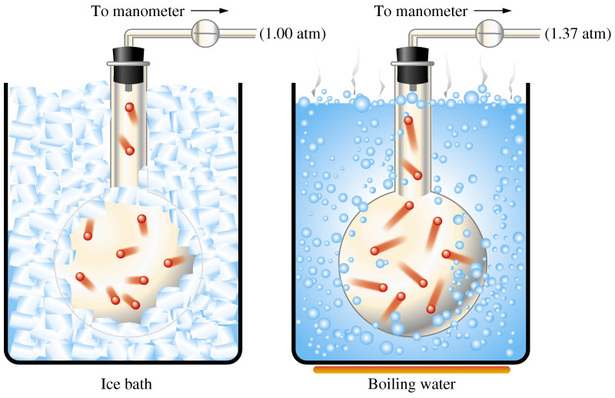The total pressure in an 12.1L automobile tire is 43.0psi at #19.0^@"C"#. How much does the pressure in the tire rise if it warms to a temperature of #34.0^@"C"# and the volume remains at 12.1L ?
1 Answer
The new pressure in the tire will be 45.2 psi.
The first thing you need to take into account is the fact that the volume remains constant. Assuming that the number of moles of gas in the tire remains constant as well, you can use Gay Lussac's Law to determine what the new pressure in the tire will be.
According to Gay Lussac's Law, pressure and temperature have a direct relationship when number of moles of gas and volume are kept constant.

In other words, if the temperature increases, you can expect the pressure in the tire to increase as well. Mathematically, this is written as
SIDE NOTE DOn't forget to convert the temperature from degrees Celsius to Kelvin!
So, plug in your values and solve for

